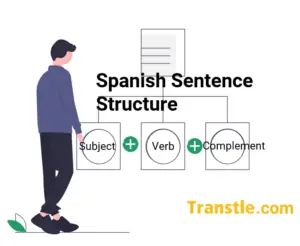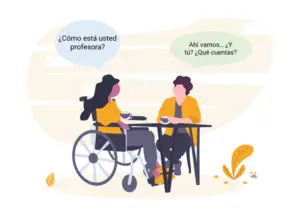Asking Questions in Spanish: Structure, Question Words & Examples
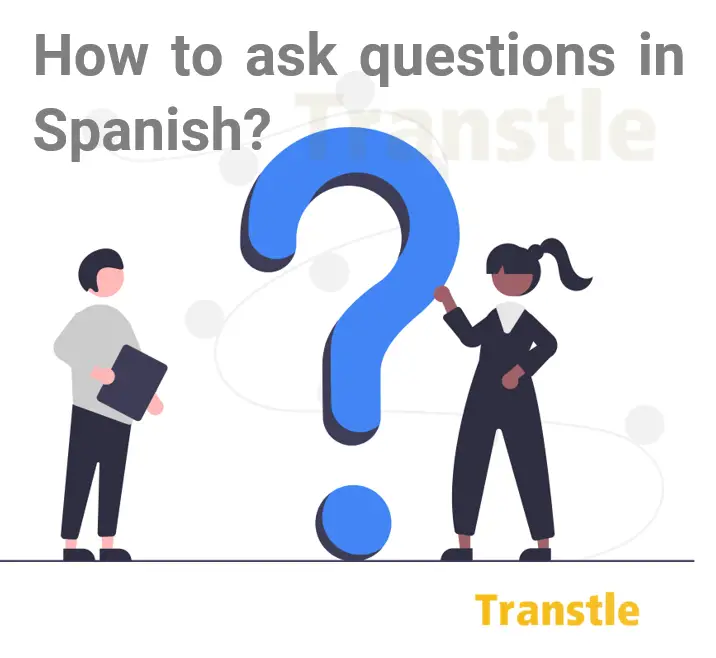
Interrogative sentences in Spanish are those used to ask questions or request information. In Spanish there are several ways to ask a question and they are the following:
- Questions with intonation or yes and not questions. For example, ¿Tú quieres ir al gimnasio? – Do you want to go to the gym?
- Questions with inversion, (verb and subject switch places), for example, ¿Quieres tú ir al gimnasio? – Do you want to go to the gym? or ¿Creen ustedes que tengo razón? – Do you think i’m right?
Additionally, interrogative pronouns can be used at the beginning of the question to ask more specific questions. All this is explained here.
How to ask questions in Spanish
Questions with intonation or yes and not questions
Questions with rising intonation are formed like an affirmative sentence (Subject + verb + complement) but with a question tone and two interrogation marks, one at the beginning and one at the end (¿?).
| Affirmative sentences | Interrogative sentences | English | |
| Quieren caminar en el jardín. | ¿Quieren caminar en el jardín ? | You want to walk in the garden? Or do you want to walk in the garden? | |
| Él está bien. | ¿Él está bien? | Is he ok? | |
| Les gusta dibujar. | ¿Les gusta dibujar? | Do they like to draw ? | |
Inverted questions
Inverted questions in Spanish are the ones where the subject and verb switch places, instead of being subject + verb, they are: verb + subject.
They take place in formal communication and also to emphasize the subjects.
Let’s compare:
| English | Question with intonation | Question with inversion |
| Do you think we must do it? | ¿Usted considera que debemos hacerlo? | ¿Considera usted que debemos hacerlo? |
| Do you think i can do it? | ¿Ustedes creen que puedo lograrlo? | ¿Creen ustedes que puedo lograrlo? |
| Is the car outside? | ¿El carro está afuera? | ¿Está el carro afuera? |
Interrogative pronouns in Spanish
Interrogative pronouns are words like what, who, when, which, where and how. They go at the beginning of the question.
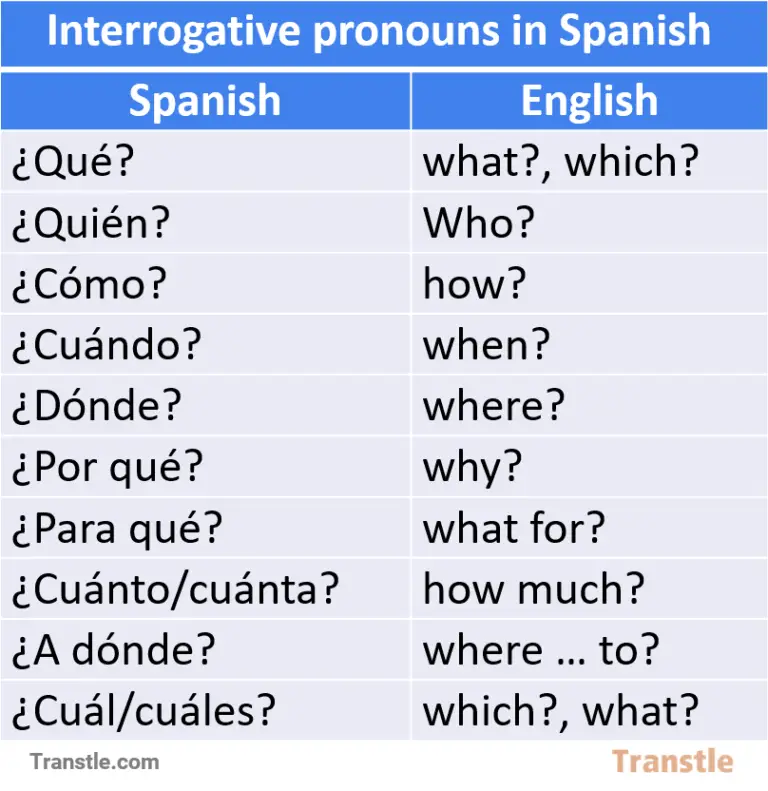
Sentences with interrogative pronouns
|
Question mark in Spanish
Spanish uses question marks both at the beginning and at the end of questions. Sometimes, it can appear in the middle of a sentence.
| Tú eres turista, ¿o te mudaste para acá? – Are you a tourist, or did you move here? |
The word that comes next to the question is always capitalized.
| Tú eres turista, ¿o te mudaste para acá? Me alegra ver a gente nueva aquí. – Are you a tourist, or did you move here? I’m glad to see new people here. |
Summary
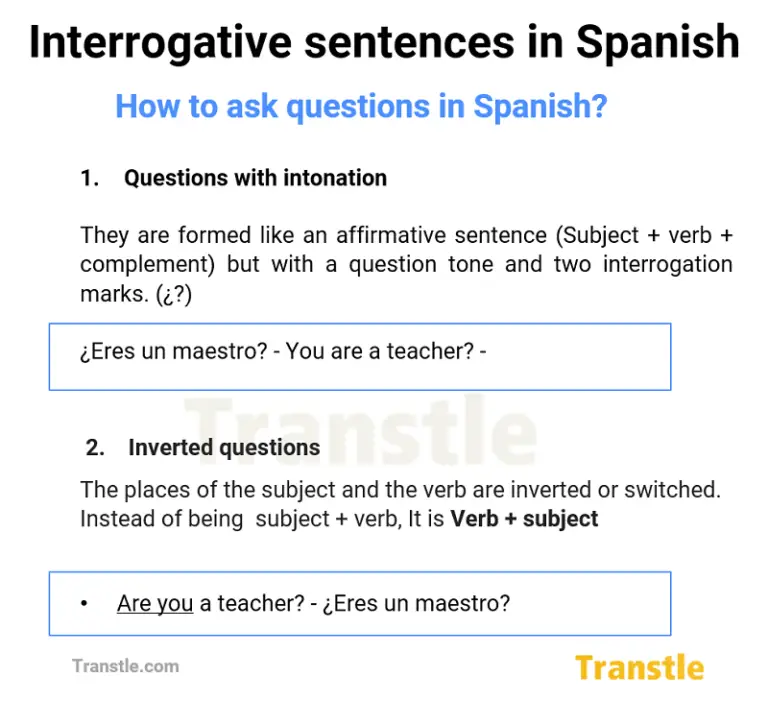
Read next

